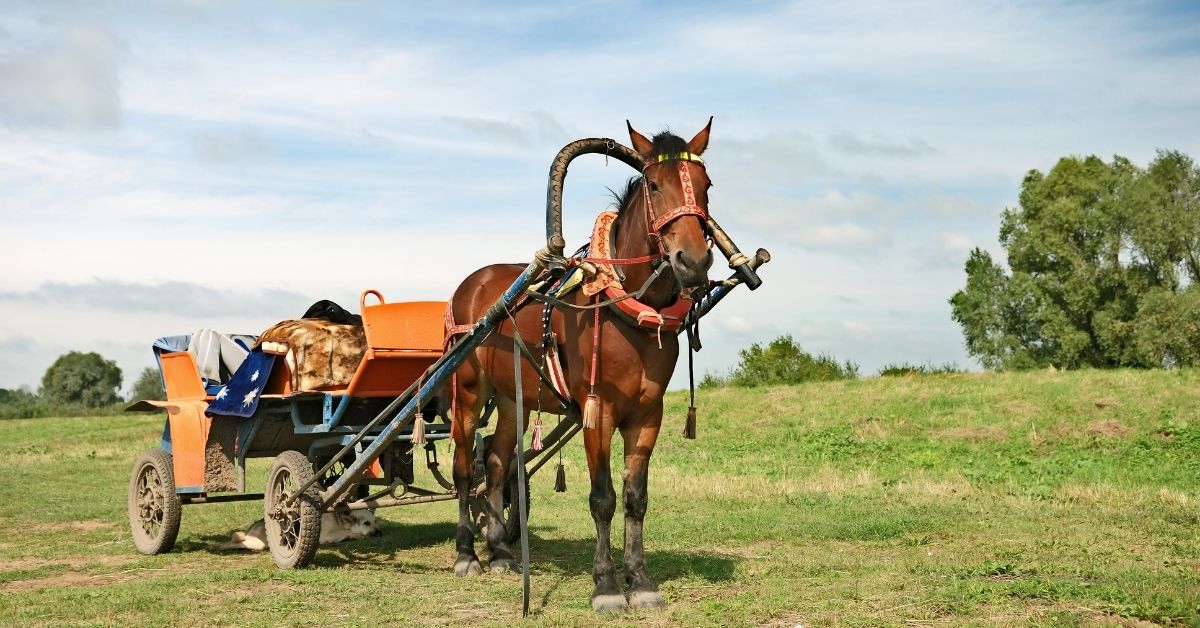
How much weight can a horse carry? Research and studies have confirmed that an average-sized adult horse can carry about 20% of its current body weight. That means if your horse is 1,000 pounds, it can carry 200 pounds.
Knowing the carrying capacity of horses is a question that has been asked for centuries. People have always wondered how much weight a horse could transport and, more importantly, how much a horse could safely carry.
Though research and studies have been conducted, the truth is that many factors are taken into account. In this article, we will explore the different aspects of horse carrying capacity to better understand just how much weight a horse can safely transport.
Common Activities Where Horses Carry Weight
There are many activities where horses are commonly asked to carry weight. These activities include the following:
- Packing: This is when a horse carries supplies for humans on their back, either in packs or panniers. Packing is a common activity in many different settings, such as wilderness camping, hunting, and even long-distance riding.
- Horse-drawn carriages: For leisurely rides and tours, as well as for transportation purposes, horse-drawn carriages are a popular way to get around in many tourist destinations. The weight of the carriage, plus the weight of the passengers, must be factored in when determining how much weight a horse can safely carry.
- Logging: In some parts of the world, horses are still used to drag logs out of the forest. This is a very strenuous task for horses and should only be done with horses in good physical condition.
- Racing and recreational activities: Although it is controversial, horse racing is still a popular spectator sport in many countries. The jockeys that ride the horses are very lightweight, but the horses still carry the weight of the saddle and equipment.
There are many other activities where horses may be asked to carry weight, but these are some of the more common ones. All of these activities require a horse to carry weight on its back, which can put a lot of strain on its body.
Therefore, it is important to understand the factors that affect how much weight a horse can carry before asking them to do so.

What’s the Horse Riding Weight Limit?
There is no definitive answer to this question. It depends on various factors, such as the horse’s size, age, breed, and health. According to a study by Craven College, the average-sized horse can carry up to 20% of its current body weight.
This means that a horse can carry almost any average-sized person without struggle. However, the same cannot be the case for overweight individuals.
Of course, horses come in all shapes and sizes. Some may be able to carry more weight, while others may not be able to carry as much. Consider the individual horse when determining the amount of weight it can carry.
Can You Ride a Horse If You’re Overweight?
Yes, you can ride a horse despite being overweight. However, certain factors need to be met before this can be possible. If you’re overweight or obese, you’ll need a big, strong, and healthy horse that’s fit enough to carry your weight.
You also need to incorporate some equipment to lighten the load on the horse’s back. This includes using a saddle that’s fitted well to add support. You also need good balance despite your weight, which helps the horse carry you more easily.
How Much Weight Can a Horse Carry Safely?
You can determine the answer to this question by taking into account the different factors that have been mentioned. However, as a general rule of thumb, a horse can safely carry 20% of its own body weight.
This means that if you have a 1,000-pound horse, it can carry 200 pounds on its back without any problems. At the same time, a 500-pound horse can carry 100 pounds, and so on.
It’s important to remember that this is only a general rule of thumb. Many factors affect how much weight a horse can carry, so it’s always best to consult a veterinarian before asking your horse to carry any weight.

What Affects How Much Your Horse Can Carry?
The average weight limit that a horse can safely carry is 20% of its current body weight. However, the same study by Craven College also stated that the ideal weight limit of horses is determined based on the following factors:
- Health and weight of the horse: A horse’s carrying capacity is significantly reduced if they’re unhealthy or overweight.
- Age of the horse: Older horses generally have a lower weight limit than younger ones.
- Breed of the horse: Some breeds of horses are stronger than others and can, therefore, carry more weight.
- Type of saddle used: The type of saddle also affects how much weight a horse can carry. For instance, an English saddle will put less strain on the horse’s back than a Western saddle.
- The height of the rider: The height of the rider in relation to the size of the horse or pony they’re going to ride also makes a difference. A taller rider on a smaller horse will require the horse to carry more weight than a shorter rider on a bigger horse.
- The workload of the horse: If a horse is carrying a light workload, it can carry more weight than if they’re carrying a heavy workload.
- Rider ability: An experienced rider can control their horse better than a novice rider, meaning the horse won’t have to work as hard to carry them.
Considering all these factors, the ideal weight limit for a horse can be determined. However, it is important to note that this is only an ideal weight limit. There may be times when a horse is asked to carry more weight than what is considered ideal, but this should only be done in special circumstances and with the approval of a veterinarian.
How Much Weight Can a Mini Horse Carry?
The same 20% body weight rule applies to all types of horses—even miniature horses. Since the average weight of a mini horse is 200 pounds, this indicates that the average weight this type of horse can carry is 40 pounds.
This also means that mini horses are not ideal to be ridden by adults, as the average adult weighs more than 200 pounds. So if you’re an adult and want to ride a horse, it’s best to choose a horse that’s big enough to accommodate your weight.
How Much Weight Can Kentucky Derby Horses Carry?
The Kentucky Derby is a horse race that’s open to three-year-old Thoroughbred horses. While there aren’t any weight specifications for Kentucky Derby horses, they do have to carry a minimum weight of 126 pounds.
This weight limit is in place because the Kentucky Derby is a very long race—it’s 1.25 miles long, to be exact. If the horses didn’t have to carry a minimum weight, they would likely be too tired to finish the race.

How Much Weight Can a Quarter Horse Carry?
Quarter horses are a type of horse that’s known for their short sprinting ability. They’re often used in rodeos and racing events that require a lot of speed.
While there isn’t an official weight limit for quarter horses, it’s generally agreed upon that the standard-sized quarter horse is suited for riders weighing between 100 to 180 pounds. This weight range is due to the fact that quarter horses are compact and muscular, which makes them better suited for carrying smaller riders.
How Much Weight Can a Pony Carry?
Ponies are often used for pony rides, especially at carnivals and fairs. While ponies can carry more weight than mini horses, they still have a weight limit that shouldn’t be exceeded.
Ponies follow the same 20% weight rule as other types of horses. This weight range allows ponies to carry one or two small children simultaneously without overloading.
It’s important to note that ponies can become easily agitated if carrying too much weight, so it’s always best to err on the side of caution when deciding how many riders to put on a pony.
Conclusion
Now that you know how much weight horses can carry, you can better decide which type of horse is right for you. Of course, you’ll need to choose a strong horse to carry your weight if you’re a heavier rider.
Conversely, if you’re a lighter rider, you’ll have more horse choices available to you. If you’re unsure about how much your horse can carry, simply follow the 20% body weight rule to be on the safe side.
Of course, you can also talk to a horse veterinarian or equine professional to get their opinion on the matter. They’ll be able to help you determine the ideal weight limit for your horse based on its size, breed, and overall health.
